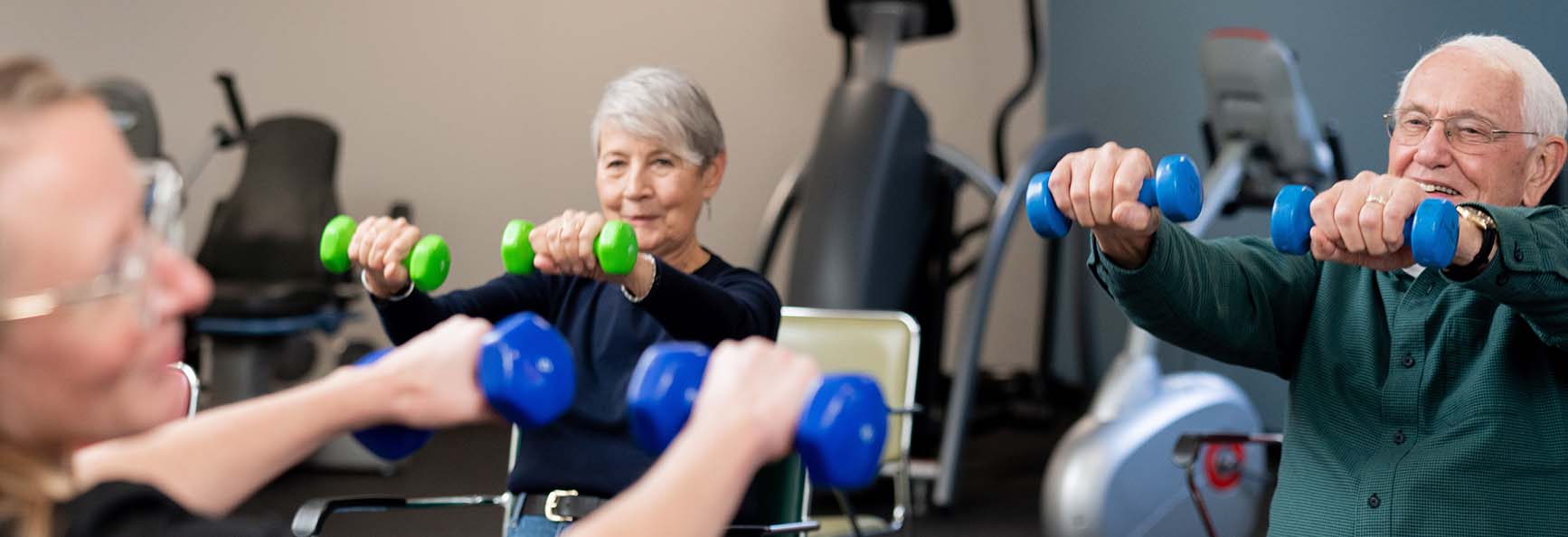June is Alzheimer's & Brain Awareness Month
Worldwide, more than 55 million people are living with Alzheimer's or another dementia, and two-thirds of Americans have at least one major potential risk factor for dementia. Dementia is defined as a progressive loss of cognitive skills and ability to adapt to ADLs affecting at least 3 of 5 areas: language, memory, visual-spatial skills, emotion, and personality, and/or cognition such as higher-level thinking. The diagnosis criteria for a person experiencing dementia may include a deterioration of understanding, impairment of memory, and diminishing abstract thinking and/or language. Dementia affects a person's memory, judgement, intellectual functioning, orientation, and mood.
Making healthy choices is important at any age, and when possible, combining these habits will achieve maximum benefit for the brain and body:
- Break a sweat: Engage in regular cardiovascular exercise that elevates your heart rate and increases blood flow to the brain and body. Several studies have found an association between physical activity and reduced risk of cognitive decline.
- Hit the books: Formal education in any stage of life will help reduce your risk of cognitive decline and dementia. For example, take a class at a local college, community center or online.
- Butt out: Evidence shows that smoking increases risk of cognitive decline. Quitting smoking can reduce that risk to levels comparable to those who have not smoked.
- Follow your heart: Risk factors for cardiovascular disease and stroke - obesity, high blood pressure and diabetes - negatively impact your cognitive health. Take care of your heart, and your brain just might follow.
- Heads up: Brain injury can raise risk of cognitive decline and dementia. Wear a seat belt when in the car and take the appropriate steps to prevent falls.
- Fuel up right: Eat a healthy and balanced diet that is lower in fat and higher in vegetables and fruit to help reduce the risk of cognitive decline. Although research on diet and cognitive function is limited, certain diets, including Mediterranean diets may contribute to risk reduction.
- Catch some ZZZ's: Not getting enough sleep due to conditions like insomnia or sleep apnea may result in problems with memory and thinking.
- Take care of your mental health: Some studies link the history of depression with increased risk of cognitive decline. Make sure to talk to your physician if you're experiencing symptoms of depression, anxiety or other mental health concerns. And remember to try to manage your stress.
- Stump yourself: Challenge and activate your mind. Complete a jigsaw or crossword puzzle. Do something artistic. Play games, such as bridge, that make you think strategically. Challenging your mind may have short- and long-term benefits for your brain.
- Buddy up: Staying socially engaged may support brain health. Pursue social activities that are meaningful to you. Find ways to be part of your community - if you love animals, consider volunteering at a local shelter. Enjoy singing? Join a local choir or help at an afterschool program. Or, just share activities with friends and family.
Rehabilitation therapy can also help. Therapists strive to improve an individual's ability to live as independently as possible in the community while engaging in meaningful and productive life roles. Therapists can evaluate and treat residents living with dementia. Therapists will develop compensatory strategies and modify the environment to enhance each resident's ability to perform functional tasks.
It's never too late or too early to start thinking about your brain's health - making healthy choices at any age is beneficial.


